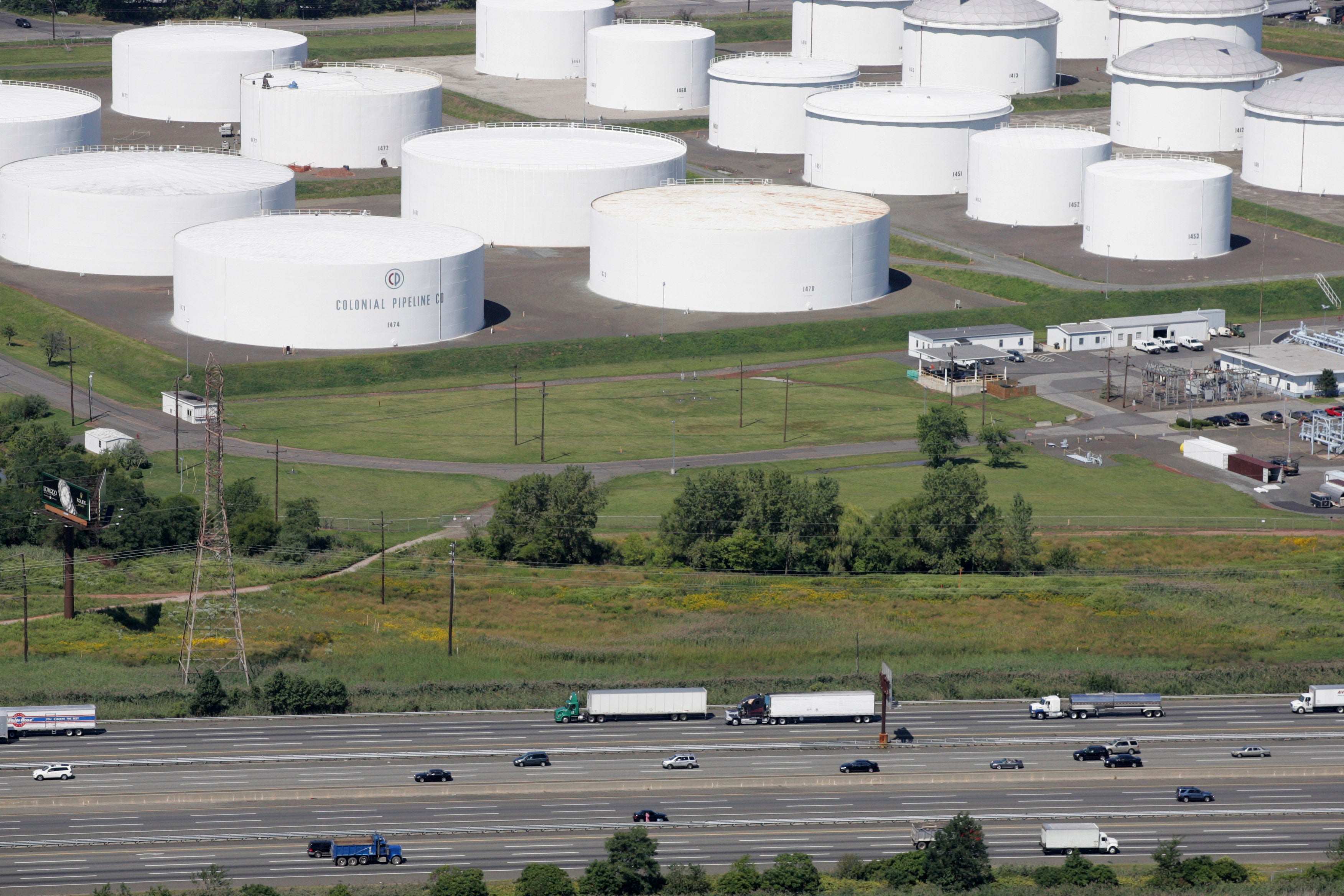Biden administration declares emergency over fuel pipeline hack and warns more attacks will come
The fuel will now be transported by road to the affected states

Your support helps us to tell the story
From reproductive rights to climate change to Big Tech, The Independent is on the ground when the story is developing. Whether it's investigating the financials of Elon Musk's pro-Trump PAC or producing our latest documentary, 'The A Word', which shines a light on the American women fighting for reproductive rights, we know how important it is to parse out the facts from the messaging.
At such a critical moment in US history, we need reporters on the ground. Your donation allows us to keep sending journalists to speak to both sides of the story.
The Independent is trusted by Americans across the entire political spectrum. And unlike many other quality news outlets, we choose not to lock Americans out of our reporting and analysis with paywalls. We believe quality journalism should be available to everyone, paid for by those who can afford it.
Your support makes all the difference.The US government declared a regional emergency after a key pipeline was hit by a cyberattack and warned that such attacks are “here to stay.”
The Colonial Pipeline, the largest fuel pipeline system in the America, was subjected to a highly sophisticated cyber attack on Friday, drawing attention to the threat of hacking for businesses and government infrastructure.
The supply line, which carries 45 per cent of the East Coast’s supply of diesel, gasoline and jet fuel, still remains largely shut after two days.
On Sunday, the US government enacted the emergency declaration, in order to keep the supply lines open as fears of shortages rose. The declaration allows the fuel to now be transported by road to the affected states.
The disruption has affected 18 states which have been granted temporary hours of service waiver for transporting gasoline, diesel, jet fuel and other refined petroleum products.
It includes Alabama, Arkansas, District of Columbia, Delaware, Florida, Georgia, Kentucky, Louisiana, Maryland, Mississippi, New Jersey, New York, North Carolina, Pennsylvania, South Carolina, Tennessee, Texas and Virginia.
It also provides regulatory relief to commercial motor vehicle operations that are part of the emergency support efforts.
However, the cyberattack has also led to the fuel prices rising on Monday, as brent crude climbed 1 per cent.
The US Commerce Secretary Gina Raimondo warned businesses on Sunday about the rising threat of cyberattacks, and said: “This is what businesses now have to worry about.”
“Unfortunately, these sorts of attacks are becoming more frequent,” Ms Raimondo told CBC news. “They’re here to stay, and we have to work in partnership with business to secure networks to defend ourselves against these attacks.”
She also said that President Joe Biden was briefed about the attack. However, there is no clarity on when the pipeline could be restored, she said.
“It’s an all hands on deck effort right now,” she said. “And we are working closely with the company, state and local officials to, you know, make sure that they get back up to normal operations as quickly as possible and there aren’t disruptions in supply.”
Join our commenting forum
Join thought-provoking conversations, follow other Independent readers and see their replies
Comments